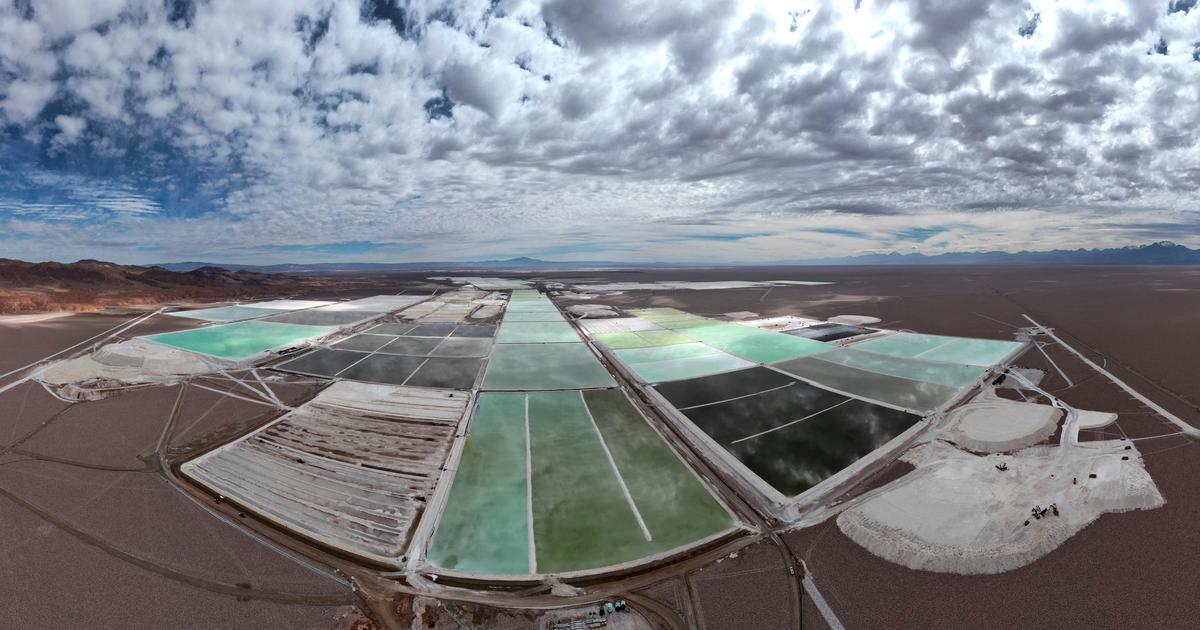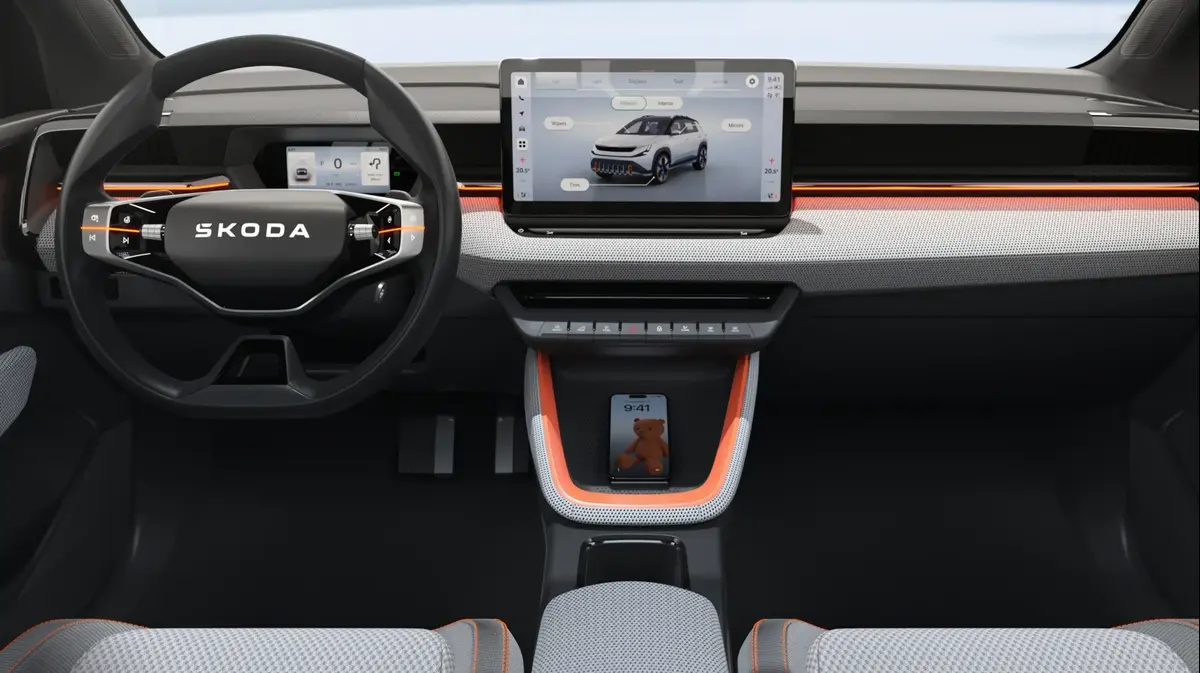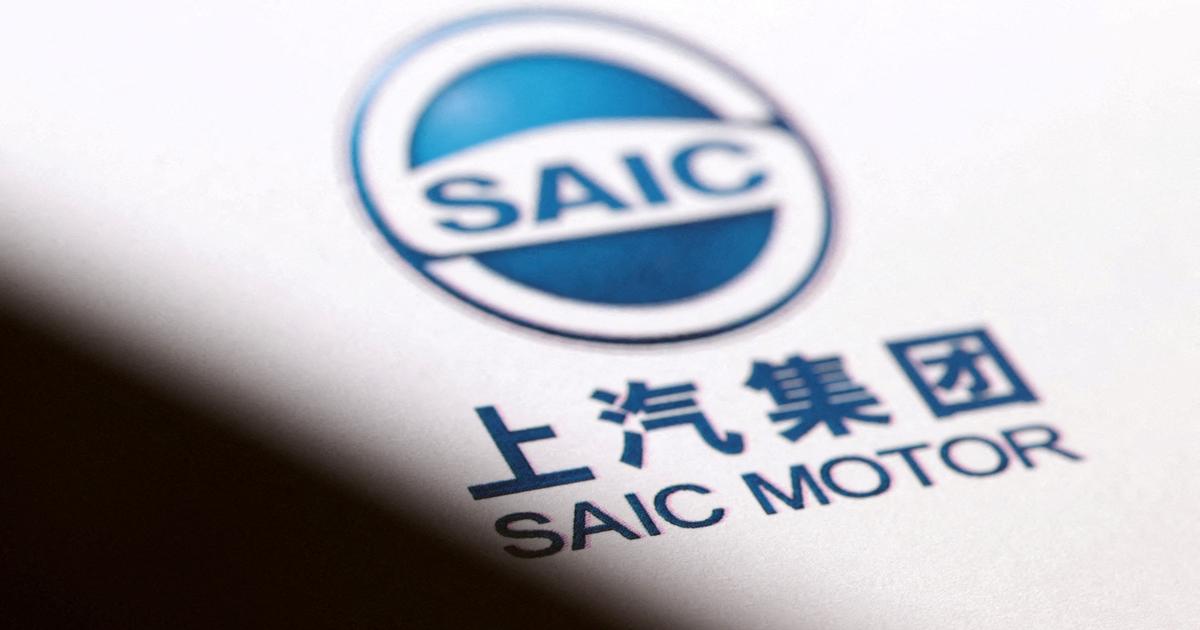Icon: enlarge
Showtime:
Volkswagen boss
Herbert Diess
on the "Power Day" stage
Photo: Volkswagen
Organizing an event like Volkswagen's "Power Day" in the middle of a pandemic that does not allow a hall audience and therefore no live atmosphere is quite a challenge.
But the makers of Europe's largest car manufacturer made every effort: the video presentation started punctually at 1 p.m. on Monday;
Volkswagen boss
Herbert Diess
(62) welcomed the online audience from a stately stage in Wolfsburg, which was to prove to be quite versatile in the course of the two-hour event.
The "Power Day" was reminiscent of the "Battery Day" of the role model Tesla.
Together with Chief Technology Officer
Thomas Schmall
(57) and the connected brand bosses
Oliver Blume
(Porsche, 52) and
Markus Duesmann
(Audi, 51),
Diess presented
the Volkswagen plans for batteries, charging networks and energy management, among other things.
Charts and graphics for the speakers' presentations were not the only things that appeared in the background.
Holograms were also played on the stage, for example from the inside of a battery cell or from an electric car into which a battery pack was virtually inserted.
With many viewers, the group should have scored with it.
Especially since the announcements
could keep up
with the presentations by Tesla boss
Elon Musk
(49).
Gigafactory, global charging networks, massive cost savings: Diess and his people promised a lot.
Presenters around the globe passed the word on to each other in what felt like five minutes, from Germany to Sweden, Great Britain, Italy or Spain to China and the USA.
The top news of the day: Volkswagen is working with partners to set up a network of its own battery cell factories in Europe.
In 2030, the company wants to produce cells in five of its own plants and in the gigafactory of the Swedish partner Northvolt in Skellefteå, announced
Thomas Schmall
(57)
, Chief Technology Officer
.
The plant in Salzgitter, Lower Saxony, which the company originally wanted to build and operate in a joint venture with Northvolt, will now be taken over by Volkswagen alone.
The Swedes have already ceded their shares, it was said in corporate circles.
Salzgitter is expected to be launched in 2025 with an initial capacity of 20 gigawatt hours (GWh), and then expanded to a capacity of 40 GWh by 2030.
VW works council chief
Bernd Osterloh
(64) demanded that "another giga factory has to be built in Germany".
That is also planned, said an insider.
However, this second plant in Germany will hardly start production before 2027.
A final decision about the project and the location has not yet been made.
Batteries for four million cars
If the group implements the plans as announced, it could produce battery cells in Europe with a total energy content of 240 gigawatt hours (GWh) per year in 2030.
With an average output of 60 KWh per battery, the group could equip around 4 million purely electrically powered cars with it.
Volkswagen would thus make itself independent, at least in Europe, of the Korean and Chinese cell manufacturers LG Chem, Samsung SDI and CATL, which have also been technically superior to date.
In the past, politicians and employee representatives had repeatedly called for European manufacturers to start manufacturing battery cells themselves.
Cell production in Sweden will begin in 2023;
Battery cells for premium models, primarily from Audi and Porsche, are to be built there.
The cells for volume models, especially from VW, Skoda and Seat, would then come from Salzgitter in the future.
Four more plants are to follow.
For example, Schmall's Chief Technology Officer announced a factory in southern Europe by 2026, with possible locations in Portugal, Spain or France.
Production at Seat in Spain is preferred in Wolfsburg.
The Spanish energy supplier Iberdrola is also to be involved there.
However, there are still some problems to be resolved with regard to state subsidies, it is said in Volkswagen circles.
Another plant is planned in Eastern Europe by 2027, although the exact location has not yet been determined.
Plants five and six should then follow by 2030, one of them in Germany.
In general, the Wolfsburg-based corporate strategists apparently favor projects with local partners as co-investors, at least abroad.
In this way, one can also keep the high investments within limits.
VW wants to increase its stake in Northvolt
Volkswagen and the Swedish partner Northvolt are dissolving their joint venture in Salzgitter.
According to Northvolt boss
Peter Carlsson
(50), the
German group will
also participate in the start-up's upcoming financing rounds.
In Wolfsburg it was said that the next round was already in preparation.
Volkswagen will probably increase its stake in Northvolt slightly from the current 20 percent.
The Munich competitor BMW is also involved in Northvolt.
BMW will also be supplied from Skellefteå from 2023 onwards.
According to Northvolt Carlsson, Volkswagen has ordered batteries worth more than 14 billion US dollars (around 11.7 billion euros) over the next ten years.
This increases the total order volume in the Northvolt books to over $ 27 billion.
"We are very happy with this partnership", said Carlsson during the "Power Day".
In addition, the group confirmed the plans to set up a fast-charging network that manager magazin had reported on in advance.
Partners from the energy sector such as Iberdrola, BP and Enel are supposed to help.
Their bosses were also connected in the course of the event on Monday and briefly outlined their contribution to the overall project.
Together they want to offer 18,000 charging points in Europe by 2025;
The companies left open the exact number of filling stations and charging stations integrated into the network.
Of the 18,000 charging points alone, 8,000 are to be created in cooperation with BP.
This will cover around a third of the entire European demand for fast charging stations in 2025, said
Elke Temme
(53)
, who is responsible for charging and energy at Volkswagen
.
Volkswagen will not set up any joint ventures with the energy companies, it was said afterwards.
The investments were also kept within limits;
the carmaker is expected to invest around 400 million euros in the expansion.
Porsche network, but without Audi?
Porsche boss Blume announced that the Stuttgart sports car manufacturer is planning a charging network especially for its own customers.
Originally, Audi also wanted to participate in this network;
The two premium brands had thought about building around 200 charging stations together in Europe.
That is obviously being called into question again.
At Audi there is currently a tendency towards investing the necessary money in new models, it said.
The plans in Europe form only one piece of the mosaic in the global plan of the group: According to the presentations, Volkswagen is also working with partners on massively expanding the charging infrastructure in China and the USA, for example.
Battery costs should be cut in half
The development and expansion of our own production capacities for components for electric models is a key issue in the automotive industry.
In order to be able to meet the more stringent climate targets, manufacturers have to bring more vehicles with alternative drives into their fleets.
The investments announced by VW are also seen as a response to the plans of US rival Tesla.
Its boss Elon Musk (49) had declared that his new electric car plant near Berlin should become the world's largest battery factory.
From 2023, Volkswagen will also be introducing a standardized, proprietary cell type.
This should help to reduce the variety of the individual variants used.
The battery costs could then - also in view of other improvements - decrease "gradually by up to 50 percent" for entry-level models and by 30 percent for higher-positioned vehicles.
In autumn, the Wolfsburg-based company presented its general planning for the next five years.
A key point is 35 billion euros only for e-mobility - together with spending on networking and digitization, a total of 73 billion euros is estimated.
Chief Technology Officer Schmall said the expanded plans for Salzgitter and Sweden were included in the sums;
the not yet finalized works three to six, however, do not.
The group has confirmed the medium-term financial targets of a fixed investment ratio of around 6 percent of sales by 2025 and an annual adjusted net cash flow of more than 10 billion euros.
ak, rei, day / dpa
ak, rei, day / DPA








